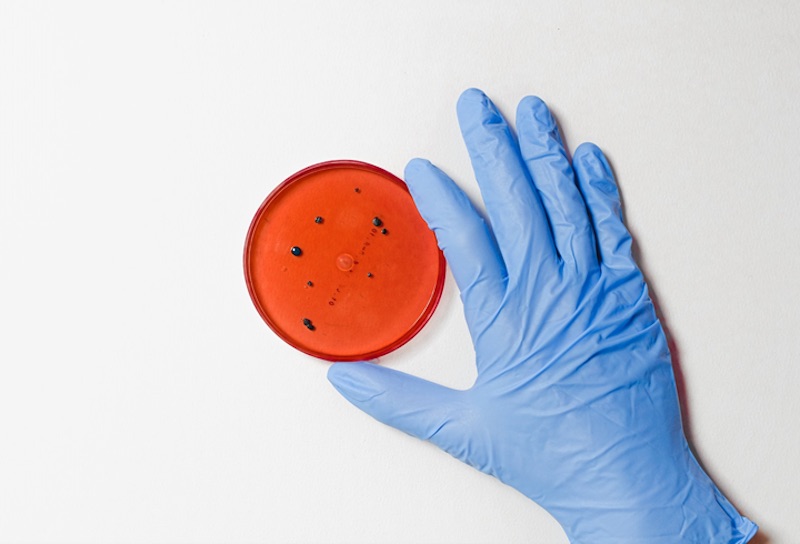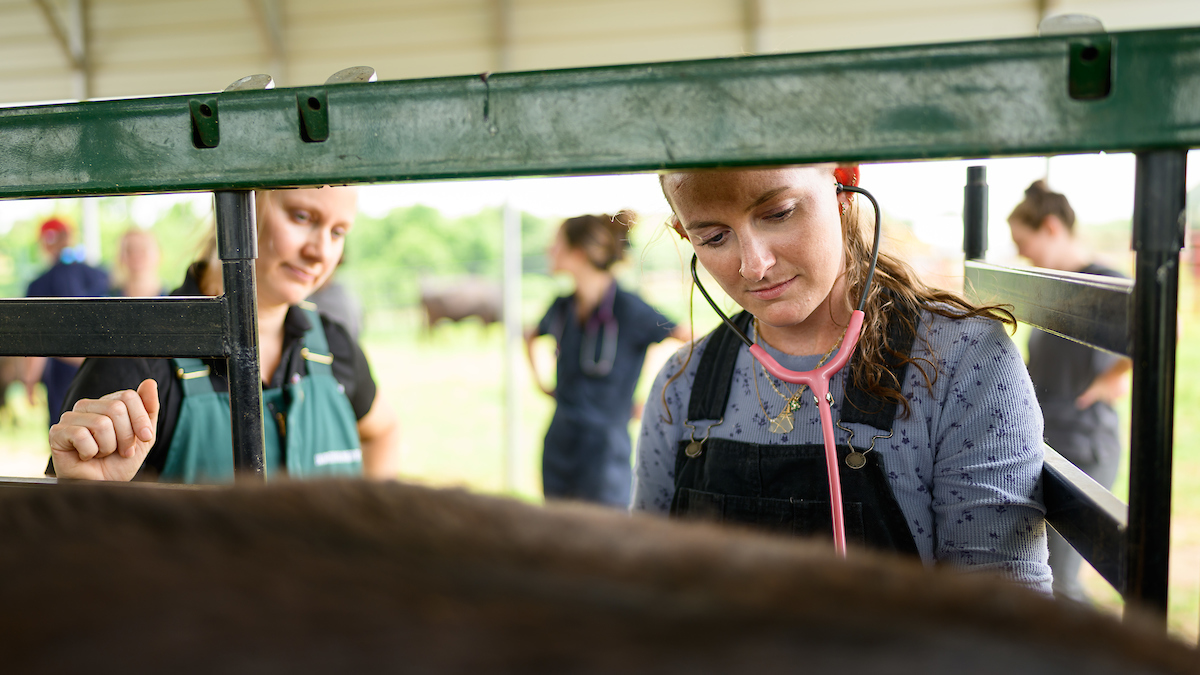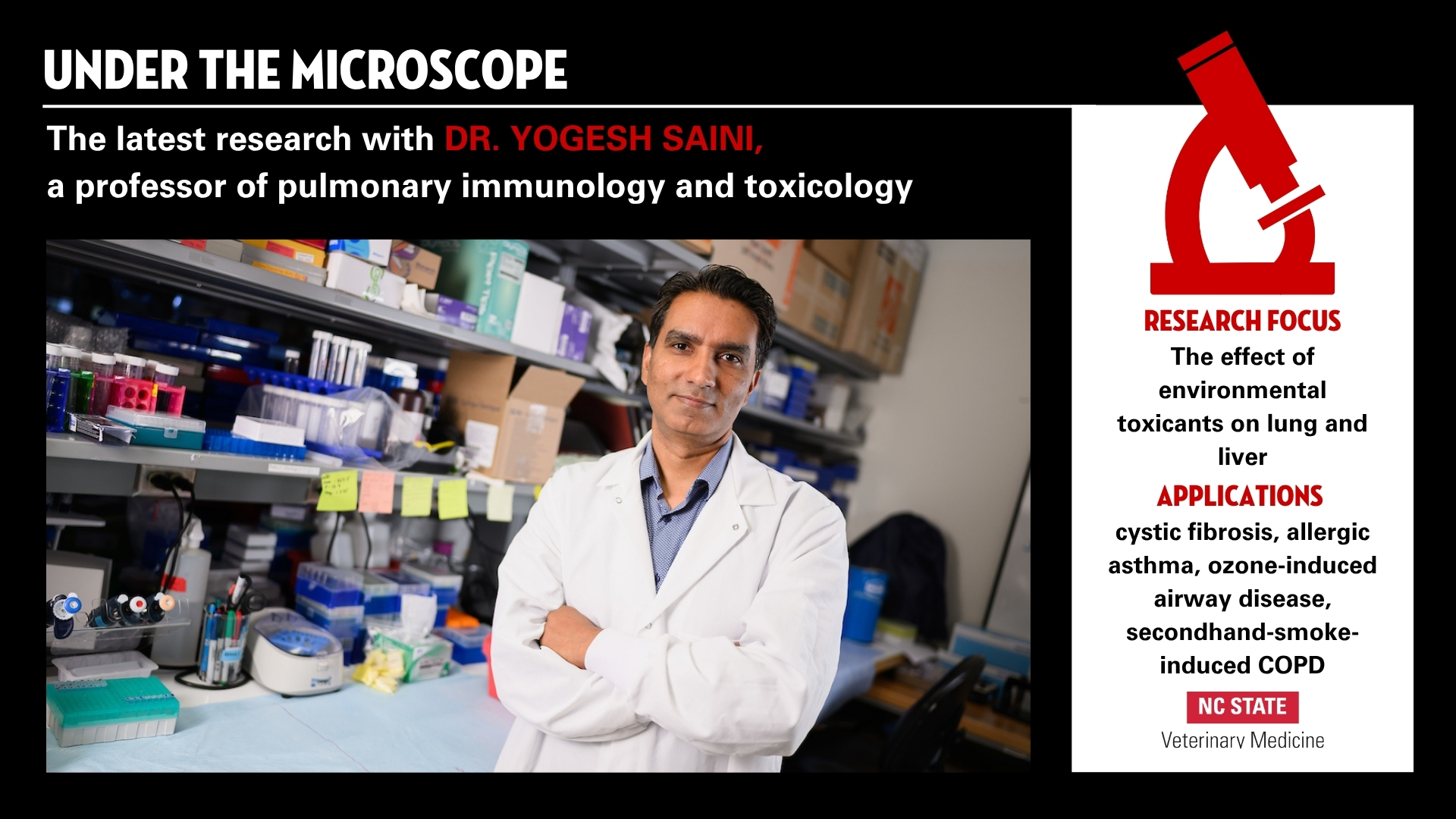Keelara Receives IAFP Young Investigator Award for Antimicrobial Resistance Research

Shivaramu Keelara Veerappa, research assistant professor in the Department of Population Health and Pathobiology at the NC State College of Veterinary Medicine, has received a Young Investigator Award in Antimicrobial Resistance from the International Association for Food Protection (IAFP).
The award, sponsored by France-based industrial biology company Institut Mérieux, includes a prize of €10,000 (about $11,200) supporting antimicrobial resistance research.
“It’s a prestigious award. I feel honored,” said Keelara. “My contributions to global health research have been recognized by scientists who are pioneers in food safety and antimicrobial resistance.”
A major research focus of the CVM global health program, antimicrobial resistance occurs when microorganisms such as bacteria develop ways to fight medications and cause untreatable infections. The threat to global health is increasingly urgent: By 2050, the number of deaths caused by antimicrobial resistance worldwide is expected to reach 10 million a year, surpassing cancer, according to a United Nations report.
Foodborne infections caused by Salmonella and Campylobacter bacteria are a major cause of illness in humans worldwide. The award helps Keelara advance his career in investigating antimicrobial resistance in foodborne pathogens.

“The IAFP award will help me generate important pilot data for new studies in the U.S. and with our collaborators in Senegal and India, and also travel to international conferences to increase my professional network,” said Keelara, whose research is also supported by the CVM’s global health program.
“I find it very fulfilling to work with people from different cultures to improve food safety, which is a basic need for humans and animals around the world. I’m also very passionate about raising awareness of global antimicrobial resistance because this is such a huge threat to global health. It’s an exciting and important field.”
Originally trained in veterinary medicine and veterinary public health, Keelara has dedicated his career to investigating the spread and evolution of antimicrobial resistance in foodborne pathogens across human, animal and environmental sectors – an approach known as One Health.
After completing his Ph.D. at the CVM, during which he studied Salmonella in swine production systems, he was a postdoctoral scientist at the U.S. Department of Agriculture, focusing on foodborne pathogens in produce. He returned to the CVM in 2016 to advance his One Health research by one again working on animal and human health.
“The CVM has given me a platform to expand my research and interests in One Health,” said Keelara.
Alongside faculty and his mentor Paula Cray, head of the population health and pathobiology department, Keelara helped establish the CVM as a World Health Organization (WHO) Collaborating Center for Antimicrobial Resistance and One Health. In this role, the CVM helps track resistance threats as they spread and evolve across human, animal and environmental sectors.
Tracking antimicrobial resistance and foodborne bacteria requires a synchronized, international effort. Keelara has trained researchers in key microbiological and molecular techniques in numerous countries and created a WHO-approved standardized protocol for handling the bacteria.
“If you’re going to compare data from 20 different countries, we need to harmonize protocols to make sure the data is comparable and reproducible,” said Keelara.
With Cray and other faculty such as Megan Jacob, CVM associate professor of clinical microbiology, Keelara also monitors the threat and growth of antimicrobial resistance in livestock throughout the U.S. Last year, the research team examined thousands of samples from goats; this year, they will expand their work to pigs.
Keelara also trains a number of international students and scholars and teaches a selective course for veterinary students in veterinary microbiology.
“I’d like to thank my mentor, Dr. Cray, for nominating me for this award and supporting my work,” said Keelara. “I’d also like to thank my longtime collaborator, Dr. Jacob, and the director of global health, Dr. Siddhartha Thakur. This is a really important milestone in my academic career.”
~Greer Arthur/NC State Veterinary Medicine Global Health


